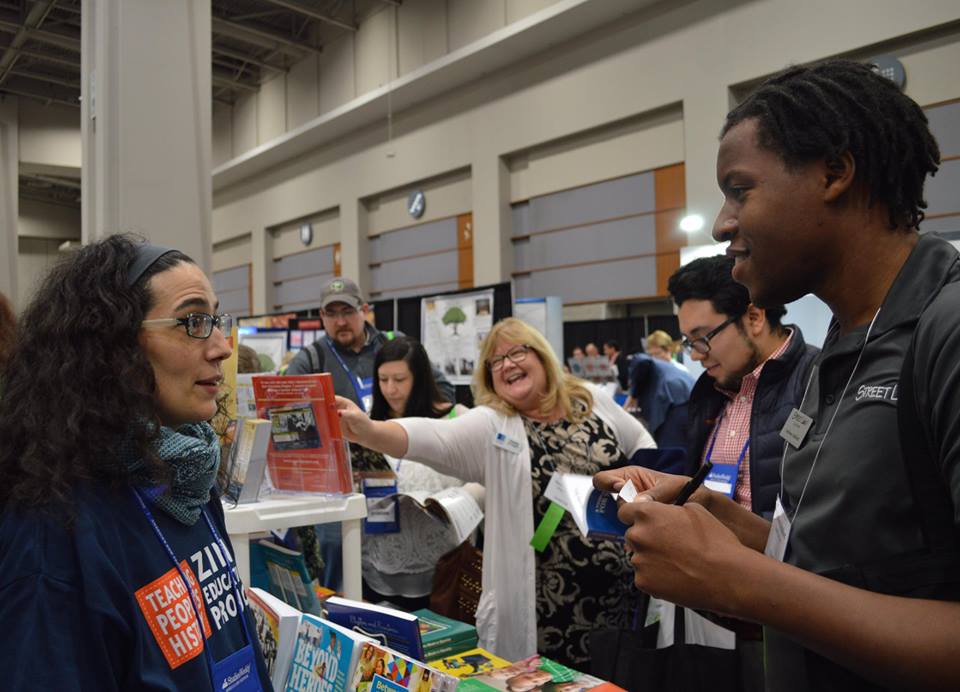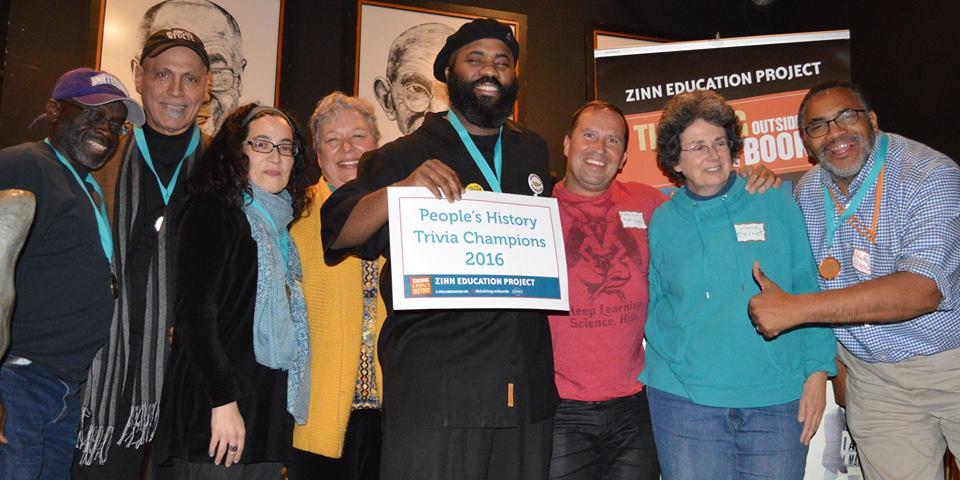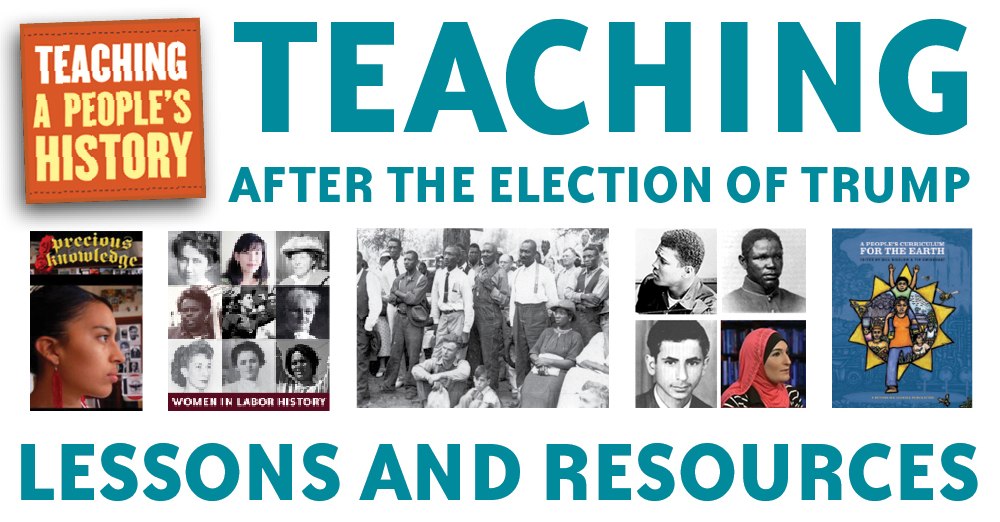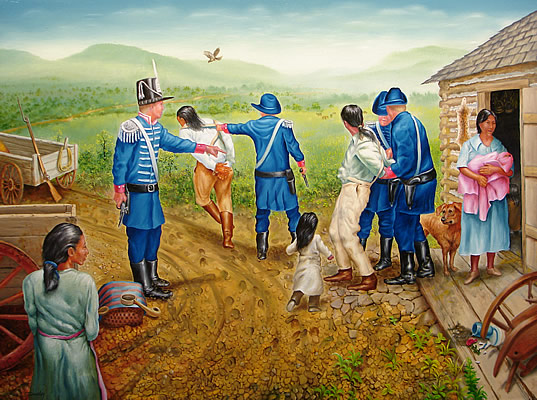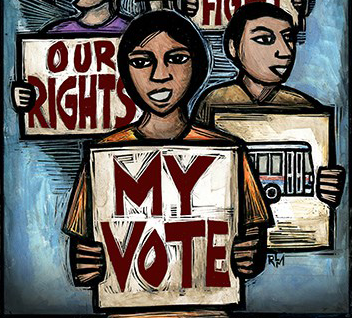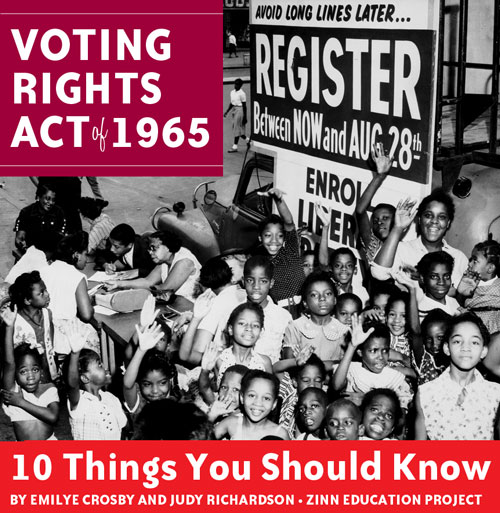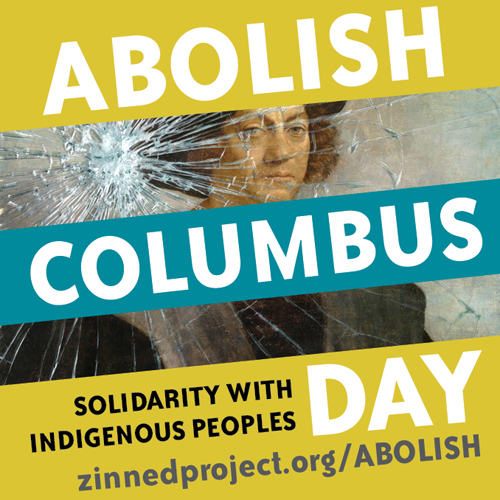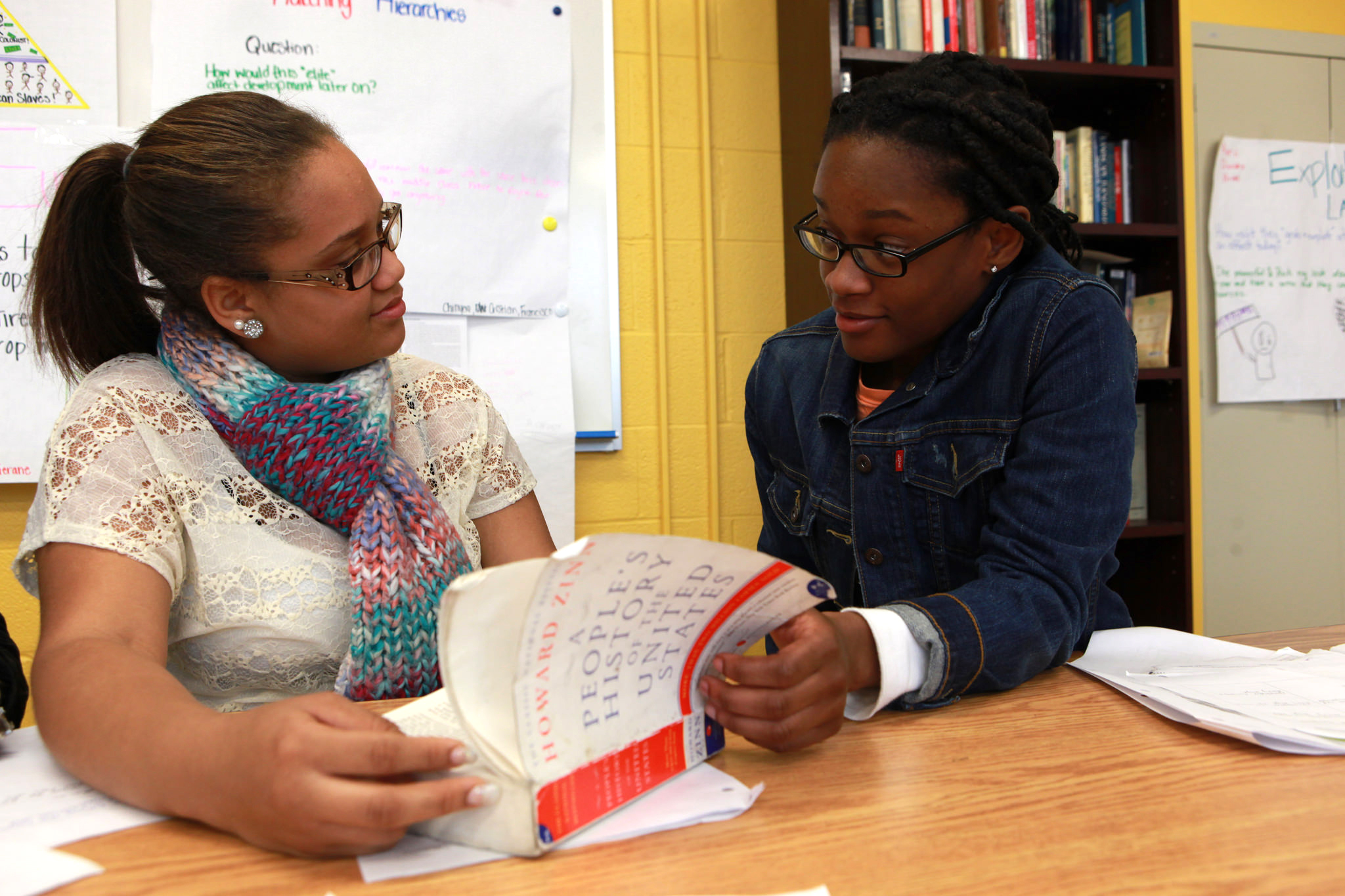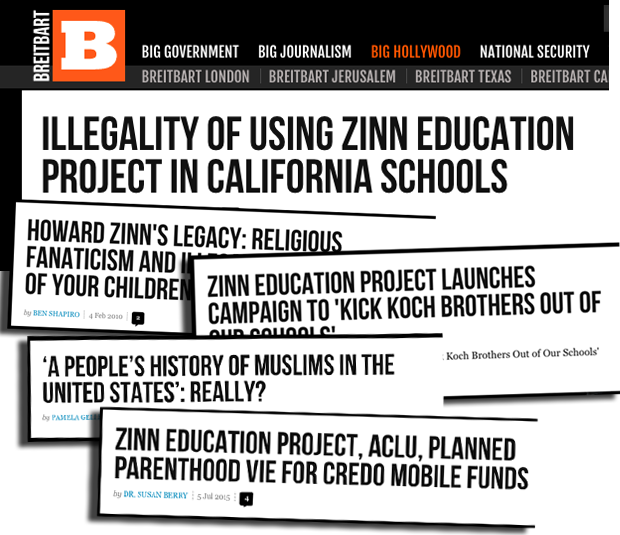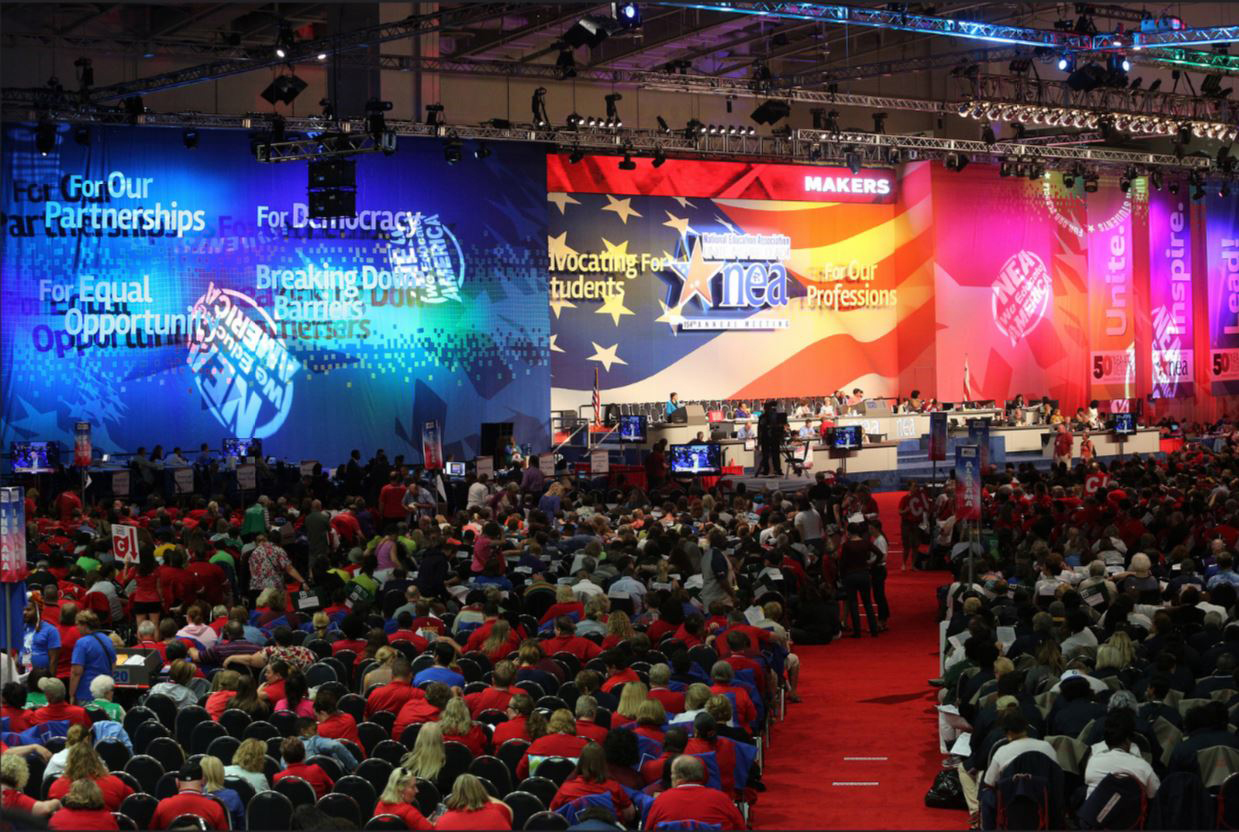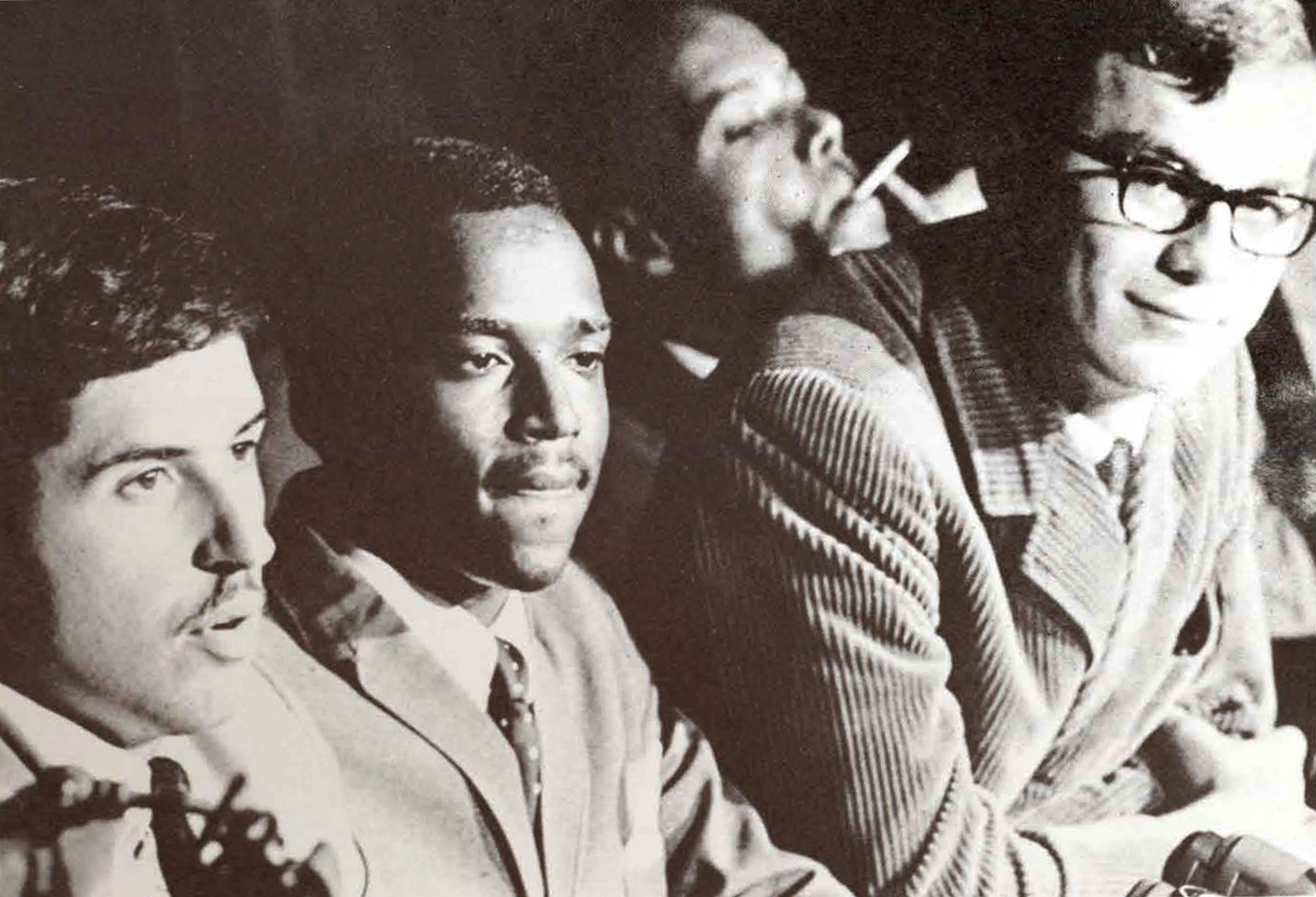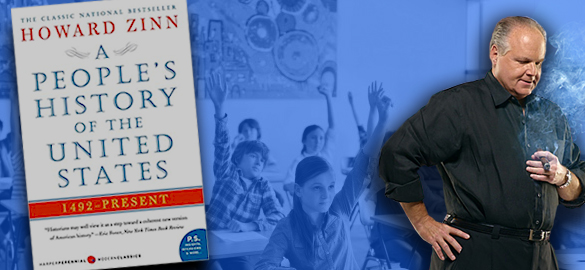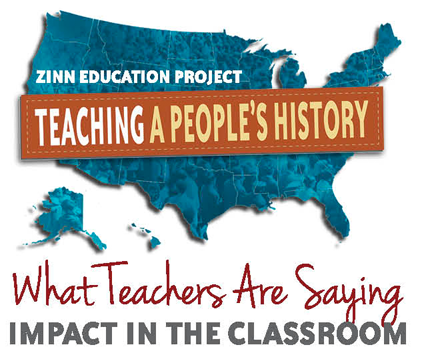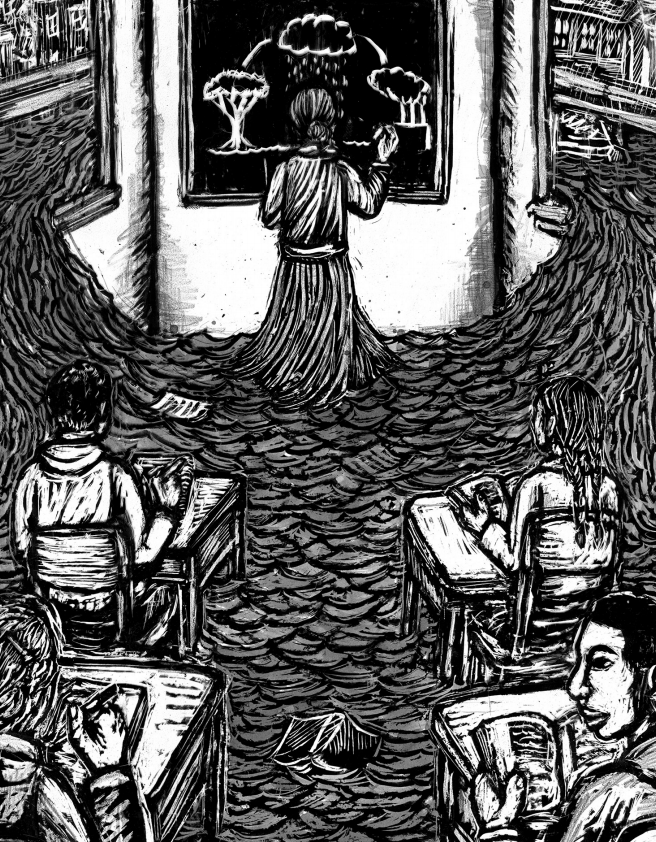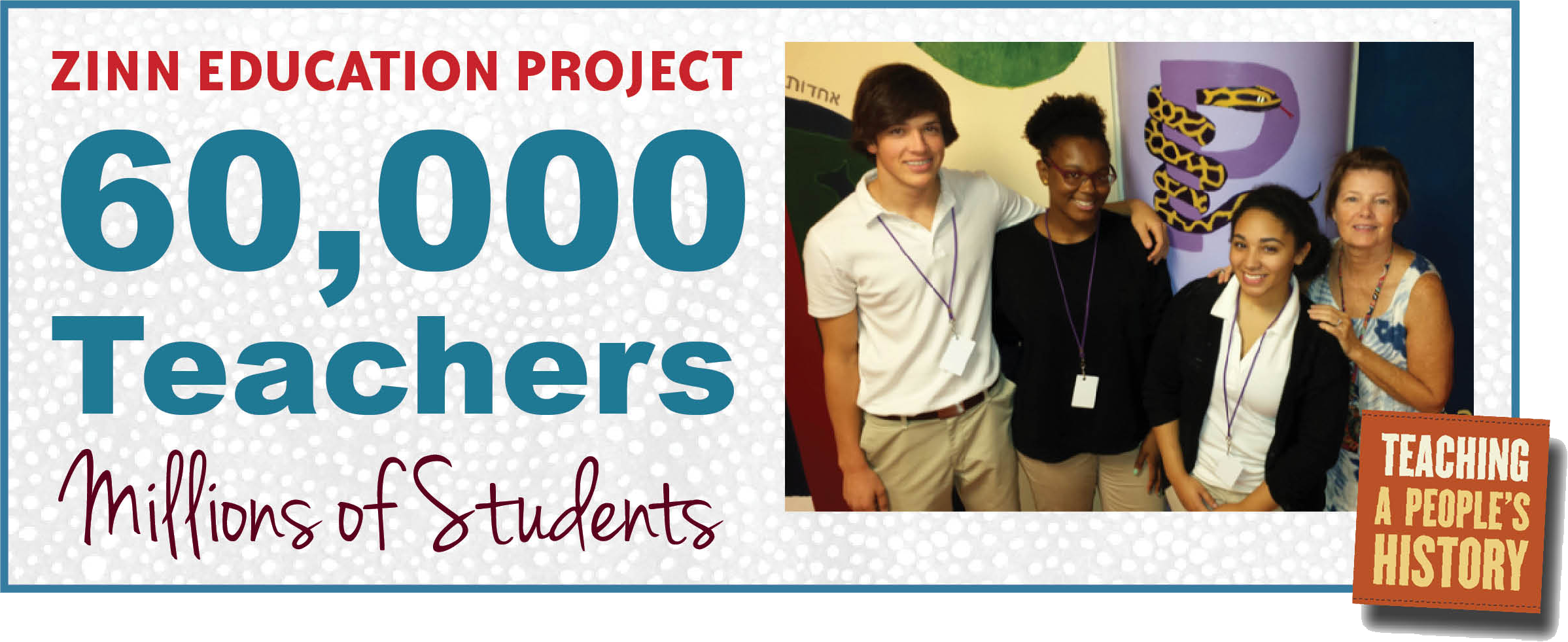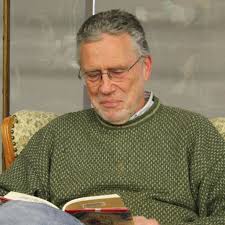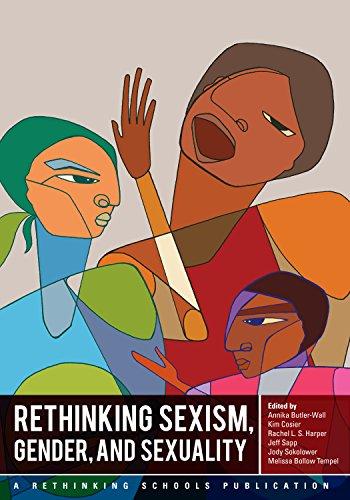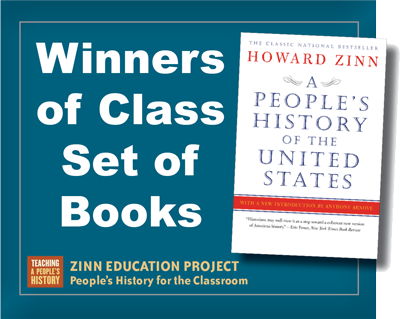The Zinn Education Project had a robust two days of discussions and community building during the 2016 National Council for the Social Studies annual conference.
Continue reading
On December 2, the Zinn Education Project hosted a packed house for the first-ever People’s History Trivia Night. Scheduled during the National Council for the Social Studies (NCSS) conference being held in Washington, D.C., this fundraising event brought together people’s history teachers and friends from around the country. It was a lively night of laughing and sharing as everyone enjoyed themselves while learning non-trivial people’s history.
Continue reading
Pitchfork magazine wrote about the 2016 elections in an article titled, "How to Get Involved in Politics Right Now: Take These Musicians’ Leads." They stressed the importance of teaching people's history, "...we must take seriously the ways in which public school resources represent our history. One easy way to do so it to look at the Zinn Education Project."
Continue reading
The Zinn Education Project stands in solidarity with those who have denounced Donald Trump’s racism, misogyny, xenophobia, and Islamophobia—as well his ignorant and deadly proposals about the environment and climate change. The role of teachers is crucial in this freedom struggle. Please check out the lessons and resources below.
Continue reading
“One of the greatest victories for the people of America since Andrew Jackson,” Rudy Giuliani , former mayor of New York City, said of Donald Trump's success in the 2016 election. We agree that Trump and Jackson have a lot in common, but neither election can be accurately described as a victory for anyone other than the wealthy elite.
Continue reading
As teachers and students return to classrooms this fall, together we have to try to make sense of a tumultuous presidential campaign and a summer of racial violence that have forcefully surfaced the racism that plagues our nation.
Continue reading
With the 2016 presidential election in the news, we share this article by Emilye Crosby and Judy Richardson, “The Voting Rights Act: Ten Things You Should Know.” Crosby and Richardson discuss key points in the history of the 1965 Voting Rights Act missing from most textbooks. We also share a segment from Democracy Now! on voting rights today.
Continue reading
Dear Friends:
As Howard Zinn’s daughter, I want to share with you how excited I am to know that more and more students across the country are learning people’s history in school, thanks to their teachers and the Zinn Education Project.
Continue reading
This month marks the 51st anniversary of the Voting Rights Act being signed into law. In this article, “The Voting Rights Act: Ten Things You Should Know,” Emilye Crosby and Judy Richardson, write: "Together with the Civil Rights Act of 1964, the Voting Rights Act ended most legal forms of white supremacy. Although this was important, it did not end all forms of racial discrimination, many of which were—and are—embedded in the structures of our society."
Continue reading
The far-right Breitbart News Service, founded in 2007, has frequently targeted the Zinn Education Project.
Continue reading
One of our most read “This Day in History” posts is about the July 29, 1910, Slocum Massacre—the racially charged murders by whites on the Black population of Slocum, Texas, and the subsequent cover-up of a community’s violent history.
Continue reading
By Bill Bigelow
Last month in Washington, D.C. the National Education Association, voted at its national convention to support the Portland resolution and to encourage state and local affiliates to create and promote climate literacy resolutions in their own communities, using the Portland resolution as a model.
Continue reading
On June 30, 1966, dozens of people assembled in the basement auditorium of the Community Church for a big announcement. All of them gathered to hear the words of three soldiers, Privates David Samas and Dennis Mora, and Private First Class James A. Johnson. The G.I.’s convened the press conference to perform a bold act: they intended to refuse their orders to go fight.
Continue reading
It is time to stop celebrating the crimes of Columbus and stand in solidarity with the Indigenous people who demand an end to Columbus Day.
Continue reading
Rush Limbaugh targeted the Zinn Education Project on his radio show last week. Why? Because our article, "A People's History of Muslims in the United States: What School Textbooks and the Media Miss," explores Muslim history in the United States since colonial times.
Continue reading
Here are a few of the many stories of why teachers value the Zinn Education Project resources and the impact with students.
Continue reading
The climate justice resolution passed on May 17, 2016, by Portland, Oregon’s school board was the country’s first such comprehensive resolution. Portland’s Educating for Climate Justice, the organization that initiated this effort, offers some thoughts on what contributed to this successful effort as well as some of the things that they'd do differently were they starting over.
Continue reading
This month, we reached the milestone of 60,000 teachers teaching outside the textbook. Each year, the Zinn Education Project grows by an average of 10,000 teachers.
Why are so many teachers signing up to use people’s history lessons from the Zinn Education Project? Here’s just a few of the many reasons we’ve heard.
Continue reading
By Bill Bigelow
In what may be a first in the nation, this week the Portland, Oregon school board passed a sweeping “climate justice” resolution that commits the school district to “abandon the use of any adopted text material that is found to express doubt about the severity of the climate crisis or its roots in human activity.”
Continue reading
Donation from Robert Forrant in honor of Bread and Roses strikers.
Continue reading
"The Color Line" lesson by Rethinking Schools editor Bill Bigelow is featured in a Washington Post article today called "How American oligarchs created the concept of race to divide and conquer the poor" by Courtland Milloy Jr.
Continue reading
From Brussels to Lahore, from Syria to the Trump campaign, the world can seem an increasingly chaotic and scary place. More than ever, teachers need people’s history resources to help students ask deep and critical questions—and to surface the grassroots activism for justice that is always there, but too often buried in the official curriculum.
Continue reading
The latest book from Rethinking Schools is Rethinking Sexism, Gender, and Sexuality that addresses questions including: How do you respond when a child asks, “Can a girl turn into a boy?” What if your daughter brings home school books with sexist, racist stories? What does “queering the curriculum” look like? What’s wrong with “anti-bullying” policies? What are alternatives?
Continue reading
We are pleased to announce the five winners of a class set of A People’s History of the United States. These teachers were among hundreds who entered our contest last fall, with many inspiring stories about how they use the lessons from the Zinn Education Project website to teach outside the textbook. Here are two examples
Continue reading

